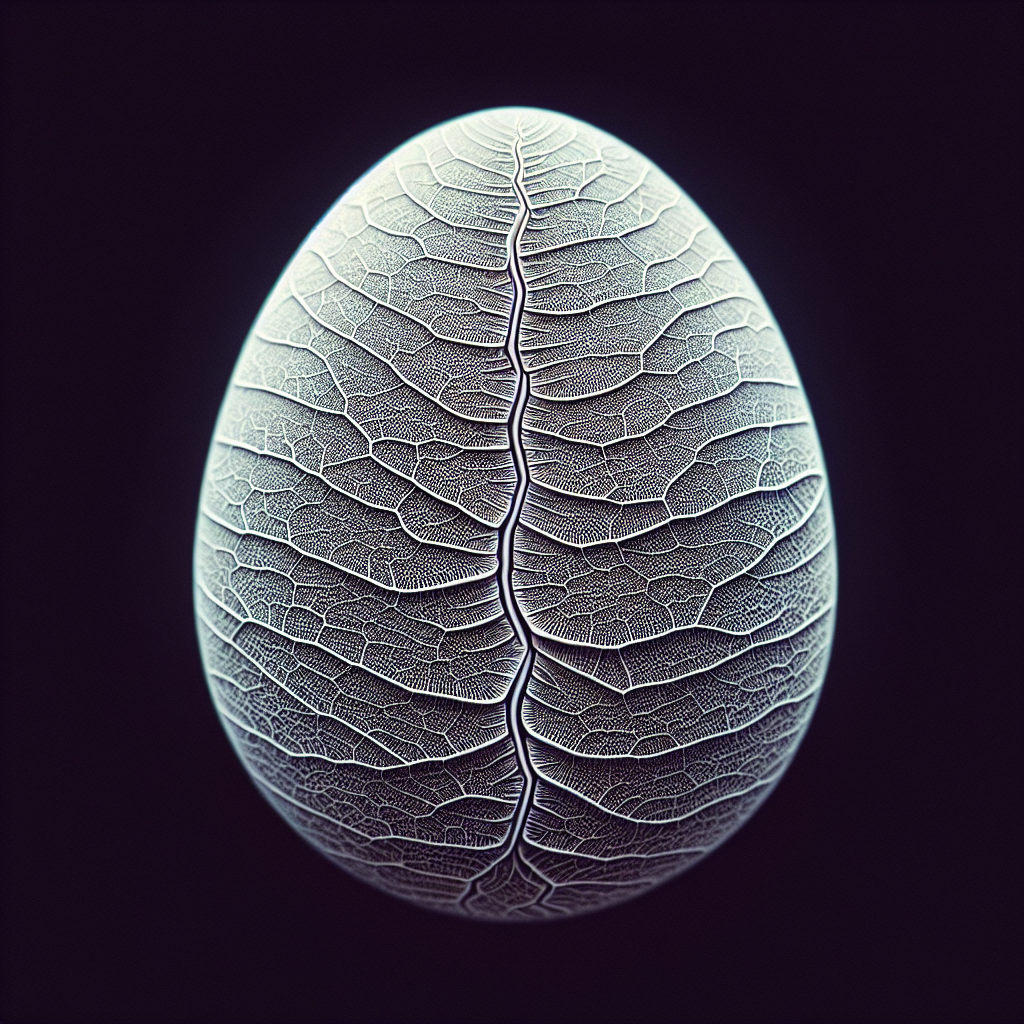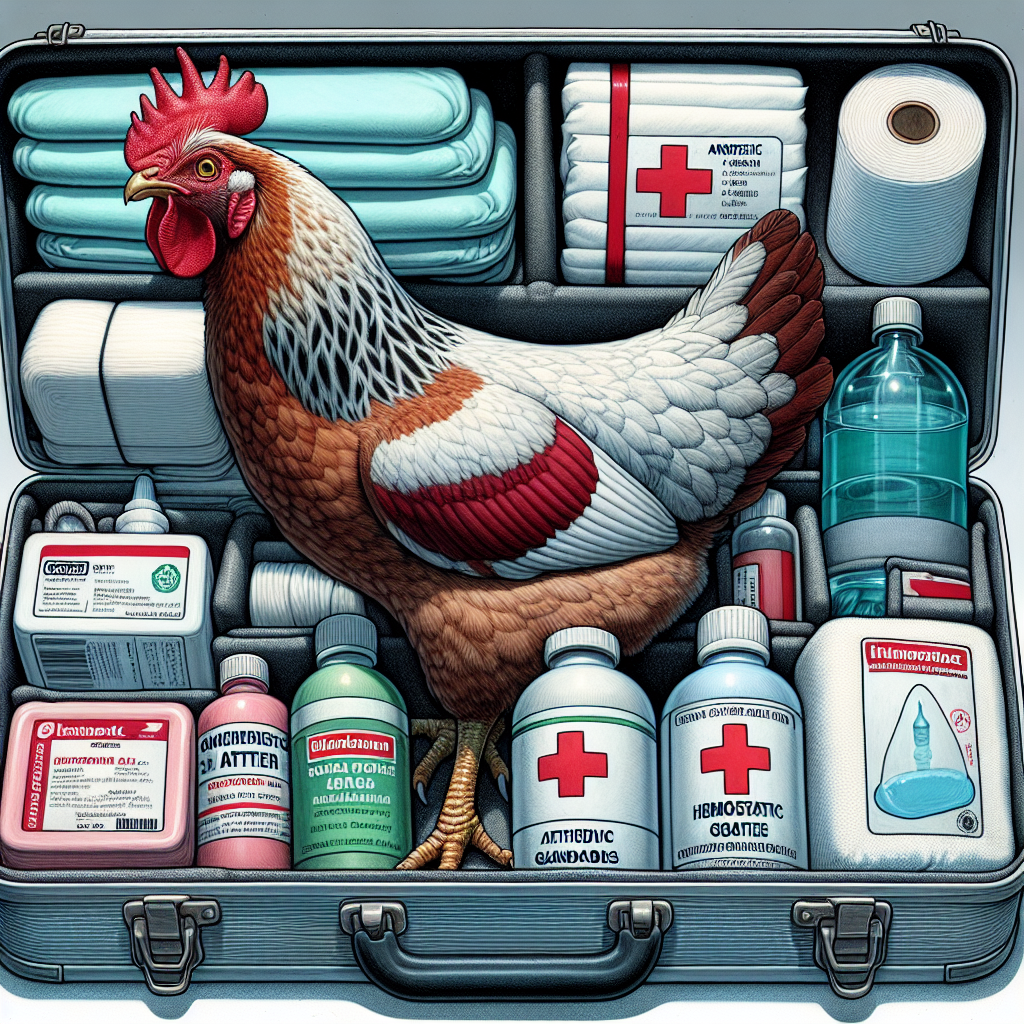Imagine this scenario: You’re a proud owner of a flock of chickens, happily tending to them in your backyard. Everything seems to be going well until one day, you notice a sudden change in the behavior of your feathered friends. They’re not eating as much as usual, seem restless, and even display signs of discomfort. What could be causing this upheaval? In this article, we will explore how sudden changes in environment or diet can have a significant impact on the digestive health of your chickens and what you can do to help them through these challenges. So, grab a cup of tea and let’s dive into the fascinating world of chickens and their delicate digestive systems.
Changes in Environment
Temperature Fluctuations
Chickens are highly sensitive to temperature changes, and sudden fluctuations can have a significant impact on their digestive health. A sudden drop or rise in temperature can cause stress and lead to digestive issues. Extreme cold or heat can affect the chicken’s ability to regulate their body temperature, which in turn affects their digestion.
Humidity Changes
Humidity plays a crucial role in maintaining a healthy environment for chickens. Sudden changes in humidity levels can disrupt their digestive system. High humidity can lead to increased moisture in their feed, making it more susceptible to mold growth. On the other hand, low humidity can result in dry conditions, affecting the chicken’s ability to process their food properly.
Lighting Alterations
Lighting is an essential factor in a chicken’s daily routine, including feeding and digestion. Sudden changes in lighting, such as abrupt shifts in intensity or duration, can disrupt their feeding patterns. Chickens need a consistent light-dark cycle to regulate their internal processes effectively. Any disruptions in their natural lighting schedule can cause stress and digestive disturbances.
Changes in Diet
Introduction of New Food
When chickens are introduced to new types of food, their digestive system needs time to adjust. Sudden dietary changes can overwhelm their digestive enzymes and gut microbiota, leading to digestive distress. It is crucial to introduce new foods gradually, allowing the chickens’ digestive system to adapt and process the new nutrients effectively.
Abrupt Diet Changes
Abrupt diet changes can be disruptive to a chicken’s digestive health. If their diet is suddenly switched without any gradual transition, it can lead to gastrointestinal upset. Chickens require a balanced and consistent diet to maintain optimal digestion. Abrupt changes deprive them of the time needed to adjust, ultimately affecting their overall gut health.
Lack of Nutritional Balance
A lack of proper nutritional balance in a chicken’s diet can also contribute to digestive issues. Chickens require a specific blend of macronutrients, vitamins, and minerals to support their digestive function. If their diet lacks essential nutrients or is unbalanced, it can lead to a variety of digestive problems, such as vitamin deficiencies, impaired digestion, and inflammation.
Impact on Gut Health
Altered Gut Microbiota
The gut microbiota plays a crucial role in maintaining digestive health. Sudden changes in the environment or diet can disrupt the delicate balance of the chicken’s gut microbiota. When this balance is disrupted, harmful bacteria can proliferate, leading to gastrointestinal issues. It is essential to provide a stable and supportive environment for the beneficial bacteria in the gut to thrive and promote healthy digestion.
Impaired Digestive Enzymes
Digestive enzymes are responsible for breaking down food particles and aiding in their absorption. Sudden changes in diet can affect the production and activity of these enzymes. Inadequate enzyme levels can result in incomplete digestion, leading to various digestive issues. Ensuring that chickens have consistent access to enzymes through a balanced diet is vital for maintaining their digestive health.
Inflammation in the Digestive Tract
Sudden changes in the environment or diet can lead to inflammation in the chicken’s digestive tract. This inflammation can be caused by factors such as stress, dietary irritants, or an imbalanced gut microbiota. Inflammation can disrupt the normal functioning of the digestive system, leading to symptoms such as pain, discomfort, and impaired nutrient absorption. Preventing inflammation through proper environmental conditions and a balanced diet is crucial for maintaining optimal gut health.
Symptoms of Digestive Issues
Diarrhea
Diarrhea is a common symptom of digestive issues in chickens. It can be caused by various factors, including sudden changes in diet, infections, or inadequate nutrient absorption. Diarrhea can lead to dehydration and nutrient loss, making it essential to address the underlying digestive issues promptly.
Vomiting
Vomiting, also known as regurgitation, is another sign of digestive issues in chickens. It occurs when food is expelled from the crop or the stomach. Vomiting can be caused by factors such as overeating, an impacted crop, or an underlying digestive disorder. Monitoring for vomiting and identifying its cause is crucial for understanding and addressing the digestive issues affecting the chickens.
Loss of Appetite
A sudden loss of appetite is a significant indication of digestive issues in chickens. It can be a result of underlying discomfort or pain in the digestive tract. When chickens refuse to eat, it can lead to nutritional deficiencies and further aggravate their gut health. Identifying the cause of appetite loss and providing appropriate veterinary care is essential for their overall well-being.
Preventive Measures
Gradual Environmental Transitions
To minimize the impact of environmental changes on chickens’ digestive health, it is recommended to implement gradual transitions. Changes in temperature and humidity should be introduced slowly to give the chickens time to acclimate and prevent stress. Adequate ventilation and proper insulation can also help maintain stable environmental conditions.
Slow Diet Modifications
To avoid digestive issues, any modifications to a chicken’s diet should be introduced gradually. Slowly incorporating new foods allows their digestive system to adapt and reduces the risk of gastrointestinal disturbances. Additionally, maintaining a balanced and nutrient-rich diet is essential for supporting their digestive health.
Balanced Nutrition and Supplements
Providing a balanced diet that meets all the nutritional requirements of chickens is crucial for preventing digestive issues. A diet rich in proteins, fibers, vitamins, and minerals can support optimal digestion. If necessary, supplements can be added to ensure any nutritional gaps are addressed. Consulting with a veterinarian to develop a well-balanced diet plan is recommended.
Seeking Veterinary Care
Professional Diagnosis
If a chicken is experiencing persistent or severe digestive issues, it is important to seek veterinary care for an accurate diagnosis. A professional veterinarian can perform a thorough examination, take necessary diagnostic tests, and determine the underlying cause of the digestive problems. This helps in developing an appropriate treatment plan.
Treatment Options
Treatment options for digestive issues in chickens vary depending on the specific diagnosis. Some treatment approaches may include dietary changes, medications, or supportive care to alleviate symptoms and promote healing. It is crucial to follow the veterinarian’s recommendations and ensure that the chickens receive the necessary treatment.
Management and Follow-up
After initial treatment, ongoing management and follow-up are crucial to monitor the chickens’ digestive health. This may involve dietary adjustments, monitoring of symptoms, and regular check-ups with the veterinarian. Effective management and regular follow-up can help prevent the recurrence of digestive issues and promote long-term gut health.
Common Digestive Disorders
Enteritis
Enteritis refers to inflammation of the small intestine in chickens. It can be caused by bacterial, viral, or parasitic infections, as well as dietary imbalances or stress. Symptoms include diarrhea, loss of appetite, and dehydration. Prompt veterinary care and appropriate treatment are essential to manage and resolve enteritis.
Coccidiosis
Coccidiosis is a common intestinal disease caused by the protozoan parasite coccidia. It can lead to severe diarrhea, weight loss, and decreased feed conversion rates in chickens. Preventive measures, such as maintaining clean living conditions and providing coccidiostats, can help control the disease. Treatment options may include medication to eliminate the parasite.
Impacted Crop
Impacted crop, also known as crop stasis, is a condition where food accumulates and becomes impacted in the crop. It can be caused by overeating, improper diet, or an underlying digestive disorder. Symptoms include regurgitation and loss of appetite. Treatment may involve massage, dietary adjustments, or, in severe cases, surgical intervention.
Potential Environmental Triggers
Extreme Temperatures
Extreme temperatures, both cold and hot, can stress chickens and impact their digestive health. Cold temperatures can lead to decreased digestion and nutrient absorption, while excessive heat can result in increased water consumption and lower feed intake. Providing appropriate shelter and ensuring a controlled environment can help mitigate the potential adverse effects of extreme temperatures.
Poor Ventilation
Poor ventilation can contribute to high ammonia levels, increased moisture, and stagnant air in the chicken coop. These conditions can negatively impact digestive health by increasing the risk of respiratory and gastrointestinal diseases. Implementing proper ventilation systems helps maintain fresh air circulation, remove harmful gases, and promote a healthier environment for chickens.
Crowding and Stress
Overcrowding chickens in a limited space creates a stressful environment that can lead to digestive issues. Stress affects the chicken’s immune system and compromises their digestive function. Providing ample space and reducing overcrowding can help minimize stress levels and support optimal gut health.
Importance of Diet
Protein and Amino Acids
Protein and amino acids are essential for a chicken’s digestive health. They support the growth and repair of the digestive system tissues and contribute to the production of digestive enzymes. Adequate protein intake ensures efficient digestion and absorption of nutrients, reducing the risk of digestive issues.
Fiber and Digestive Function
Fiber plays a crucial role in maintaining optimal digestive function in chickens. It promotes proper gut motility, increases the bulk of the stool, and supports the growth of beneficial gut bacteria. Including fiber-rich ingredients in a chicken’s diet can prevent issues such as constipation and promote regular and healthy digestion.
Vitamins and Minerals
Vitamins and minerals are vital for a chicken’s overall health and digestive function. They play key roles in enzyme production, nutrient absorption, and immune system function. A diverse and well-balanced diet that includes a variety of fruits, vegetables, and grains ensures an adequate intake of essential vitamins and minerals for optimal digestive health.
Implementing Changes Gradually
Slowly Introducing New Foods
When introducing new foods to chickens, it is crucial to do so gradually. Start by incorporating small amounts of the new food into their existing diet and gradually increase the proportion over time. This allows their digestive system to adjust and minimizes the risk of digestive issues.
Transitioning Environmental Conditions
Environmental conditions should also be transitioned slowly to minimize the impact on chickens’ digestive health. Gradually adjust temperature, humidity, and lighting to help them adapt to the changes. By giving them time to adjust, stress levels are reduced, and digestive issues can be prevented.
Monitoring and Adjusting
Regular monitoring of chickens’ digestive health is essential to identify any issues early on. Keep a close eye on their eating habits, stool consistency, and overall behavior. If any digestive issues arise, take appropriate action such as adjusting the diet, seeking veterinary care, or modifying environmental conditions to ensure their well-being.
In conclusion, sudden changes in environment or diet can have significant impacts on chickens’ digestive health. It is important to implement changes gradually, provide a balanced diet, and maintain a suitable environment to prevent digestive issues. Monitoring their overall well-being, seeking veterinary care when necessary, and implementing preventive measures can help ensure optimal digestive health for chickens.




